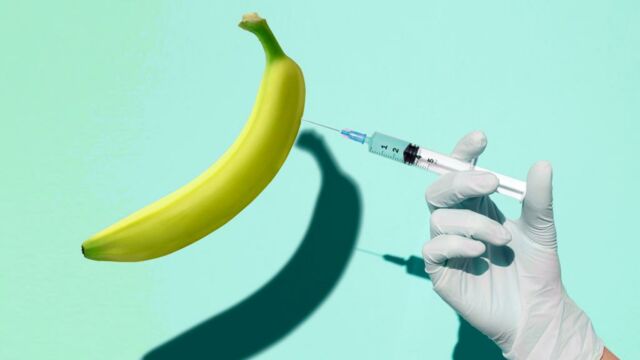Previously it was revealed that erectile dysfunction could be one of the rare and little-known symptoms of COVID-19. Now, a recent study has uncovered the correlation between the two conditions.
Discover our latest podcast
Study shows COVID can cause damage to penile tissue
Researchers of a paper published in the World Journal of Men’s Health analysed the difference in penis tissue between four men set to have penile prosthesis surgery forerectile dysfunction. All of the men were of Hispanic ethnicity and within the age bracket of 65-71. Out of the four men, two had contracted coronavirus and those who had not.
The study found that COVID could cause swelling and damage to the body’s blood vessels, causing dysfunction in the parts of the body to which the blood vessels supply, like the spongy, penile tissue.
Lead author of the study, Professor Ranjith Ramasamy, director of the University of Miami Miller School of Medicine's reproductive urology program, revealed:
We found that men who previously did not complain of erectile dysfunction developed pretty severe erectile dysfunction after the onset of COVID infection.
Of the two men that had experienced coronavirus, one had to be hospitalised, and one did not. Both infections occurred six and eight months before the election for surgery. Neither man had any history of erectile dysfunction, suggesting any level of infection could result in erectile dysfunction.
However, the study led by Ramasamy was a small one and still cannot prove a definitive link between the virus and erectile dysfunction. Because of the small scale of the study, it is still unknown if coronavirus enters the penis of every infected man. It is also unknown whether erectile dysfunction resulted directly from endothelial dysfunction in the penis or a side-effect of damage somewhere else in the body.
Of men in the study who had coronavirus, one also had underlying conditions which could have contributed to erectile dysfunction, including high blood pressure and heart disease.
Despite this, researchers discovered that there were lower levels of erection causing enzymes in the COVID affected patients and remnants of the virus left in the penis tissue. Experts believe this is the first time COVID has actually been found in the penis. Ramasamy continued:
Our research shows that COVID-19 can cause widespread endothelial dysfunction in organ systems beyond the lungs and kidneys. The underlying endothelial dysfunction that happens because of COVID-19 can enter the endothelial cells and affect many organs, including the penis.
Erectile dysfunction could happen to one in three men with COVID
While this is the first time evidence of the virus has been found in the penis tissue long after infection, it is not the first time COVID has been linked to erectile dysfunction. Another recent study in Italy has concluded that erectile dysfunction could happen to as many as one in three men who contract coronavirus.
Scientists in Rome asked 100 men aged 33 on average, who had all recovered from coronavirus, whether or not they were experiencing any difficulties becoming aroused. Of those involved in the survey, 28% admitted to having erectile problems. The rate was just 9% in those who were not infected with the virus.
Researches have suggested that erectile dysfunction could also be linked to COVID binding to the ACE-2 receptors in the body, which are present in both the lungs and testes. Dr Channa Jayasena, a consultant in reproductive endocrinology at Hammersmith Hospital, London, explained:
One of the devious ways the virus gets into the body is by its spike protein binding to a receptor found at quite high concentrations not only in the lungs but in the reproductive organs. When COVID binds to these receptors, they can no longer perform their normal function.
The studies have so far highlighted the importance of becoming vaccinated, and anyone suffering from erectile issues should make sure to see their doctor. Eliyahu Kresch, a medical student who participated in the Miami study, added:
These latest findings are yet another reason that we should all do our best to avoid COVID. We recommend vaccination and to try to stay safe in general.















